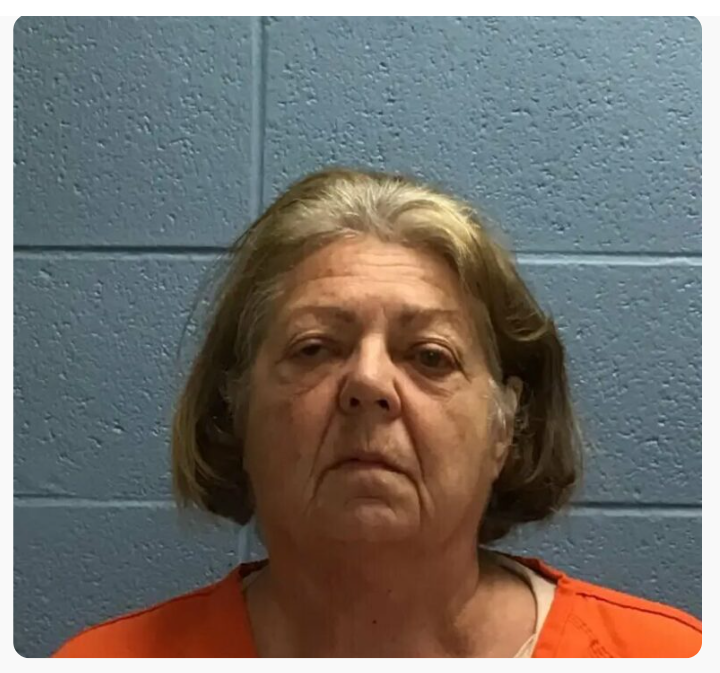Tracy Duncan Mourned as Victim in Ottawa Carousel Crescent Homicide: Tragic Femicide Leaves Community Reeling, 57-Year-Old Male Suspect in Custody
OTTAWA, ONTARIO — The Ottawa community is in mourning following the heartbreaking and violent death of Tracy Duncan, a 54-year-old woman found deceased in her home on Carousel Crescent on the morning of June 2, 2025. The case has sent shockwaves throughout the city, as police investigate what they are formally treating as a femicide — a gender-based killing that underscores the grim realities of intimate partner and domestic violence in Canada.
At approximately 11:30 a.m., the Ottawa Police Service (OPS) received a call reporting a deceased individual at a residence in the southeastern Ottawa neighborhood of Hunt Club Park, where Carousel Crescent is located. Emergency responders rushed to the scene and discovered Tracy Duncan’s lifeless body inside the home. Despite swift intervention by paramedics and law enforcement officers, she was pronounced dead at the scene.
Later that day, police arrested a 57-year-old male suspect, who remains unnamed as part of the ongoing investigation. He has since been charged with second-degree murder. While details about the suspect’s identity and his relationship to the victim have not been publicly released, authorities confirmed that he and Tracy Duncan were known to each other, suggesting a possible intimate or domestic connection — a fact that aligns with the case being classified as a femicide.
What Is Femicide? Understanding the Term
The term “femicide” refers to the intentional killing of women and girls because of their gender, a phenomenon that has been increasingly recognized and tracked by advocacy organizations, law enforcement agencies, and governments across the globe. In Canada, femicide is often linked to intimate partner violence, domestic abuse, and misogyny. It represents not just an individual loss, but a systemic issue deeply embedded in societal attitudes, gender roles, and the failures of protective institutions.
By categorizing Tracy Duncan’s death as a femicide, investigators are acknowledging the gendered nature of the violence she suffered. It reflects a growing commitment within Canadian legal and social frameworks to understand and combat violence against women more holistically — not merely as a crime, but as a gender-based human rights violation.
Community in Grief: Tributes and Reactions
The news of Tracy Duncan’s death has rippled through her neighborhood and the broader Ottawa area. Neighbors, colleagues, friends, and community members expressed shock, sorrow, and outrage, recalling her as a warm, kind, and generous individual. Though not many personal details have yet been shared publicly about her life, those who knew her describe Tracy as someone who lit up every room and was deeply involved in her community.
“She was always so friendly and thoughtful,” one neighbor told reporters. “This is just devastating. It’s hard to believe something like this could happen so close to home.”
Local women’s organizations have also spoken out in the aftermath of the tragedy. Several groups have issued statements calling for greater awareness, resources, and policy changes to prevent gender-based violence. Candlelight vigils, memorial walks, and social media tributes under hashtags like #JusticeForTracy and #EndFemicideNow have begun to appear in solidarity with the victim and in advocacy for broader systemic change.
A Broader Crisis: Femicide in Canada
While Tracy Duncan’s death is uniquely tragic, it is sadly not an isolated incident. Across Canada, women — especially those in domestic relationships or precarious circumstances — continue to face high rates of violence. According to the Canadian Femicide Observatory for Justice and Accountability, one woman or girl is killed every 48 hours on average in Canada, most often by someone they know.
In recent years, the term femicide has gained traction in both legal and policy circles. Canadian lawmakers and advocacy groups have called for the formal inclusion of femicide in the Criminal Code, arguing that recognizing gender-based killings by name is essential to crafting appropriate preventive and punitive responses.
Tracy Duncan’s death now joins a long, painful list of women whose lives have been cut short by senseless, preventable violence. Her case reopens the urgent conversation around the need for early intervention systems, stronger protective measures for women at risk, and increased funding for shelters, mental health services, and education on toxic masculinity and gender dynamics.
The Investigation and Legal Process
As of June 3, 2025, the Ottawa Police Homicide Unit continues its investigation into Tracy Duncan’s death. Forensic teams and detectives have been working tirelessly at the scene, collecting evidence, speaking with neighbors, and piecing together a timeline of events leading up to her death.
The 57-year-old male suspect remains in custody pending a bail hearing, and police have stated that additional information may be released as the investigation progresses. For now, the public is being asked to come forward with any relevant information that could assist authorities. Anonymous tips can be submitted to Crime Stoppers.
Although no motive has been officially released, the nature of the charge — second-degree murder — implies that the act was intentional but not premeditated. Legal experts note that if the Crown can establish a pattern of abuse or threats leading up to the crime, additional or upgraded charges could be considered.
Ottawa’s Response: City Officials and Police Speak Out
In a brief public statement, the Ottawa Police Service extended condolences to Tracy Duncan’s family and reiterated its commitment to tackling gender-based violence. “We are treating this case with the seriousness and urgency it deserves,” a spokesperson said. “Femicide is a pressing public safety and social issue, and we are committed to supporting victims and their families while holding perpetrators accountable.”
Mayor Mark Sutcliffe also expressed his condolences, stating that “this tragedy highlights the ongoing crisis of gender-based violence that continues to claim the lives of women in our city and beyond. Tracy Duncan deserved to be safe in her home. We must redouble our efforts as a city to prevent such tragedies and support survivors.”
City council members have since proposed a renewed push for Ottawa’s Gender-Based Violence Strategy, including calls for:
- More emergency housing options for women fleeing abuse
- Faster response times for domestic violence calls
- Community education initiatives in schools and workplaces
- Better tracking and public reporting of femicide cases
Remembering Tracy Duncan
As the investigation continues and the legal process unfolds, one truth remains unshakable: Tracy Duncan’s life mattered. She was a daughter, a friend, possibly a mother or a sister — a human being whose life was taken far too soon. While authorities have yet to share more details about her personal story, the outpouring of community grief and outrage makes clear that she will not be forgotten.
Her name is now added to the growing list of women lost to gender-based violence in Canada. Let it be a name that catalyzes action, policy reform, and public consciousness, not just another headline lost to the news cycle.
A Call to Action
Tracy Duncan’s death stands as a somber reminder of the work that remains in the fight against gender-based violence. While police and legal proceedings continue, advocates urge the public to:
- Educate themselves and others about warning signs of domestic abuse
- Support local shelters and victim advocacy organizations
- Push policymakers to prioritize violence prevention in budgets and legislation
- Speak out against misogyny, toxic masculinity, and the normalization of violence
If you or someone you know is experiencing abuse or violence, please reach out to resources such as:
- ShelterSafe.ca
- Ottawa Coalition to End Violence Against Women (OCTEVAW)
- Fem’aide: a 24/7 crisis line for Francophone women
- The Assaulted Women’s Helpline: 1-866-863-0511
Together, we must honor Tracy Duncan’s memory by ensuring her death was not in vain — by building a world where women and girls can live free from fear, violence, and harm.










Leave a Reply